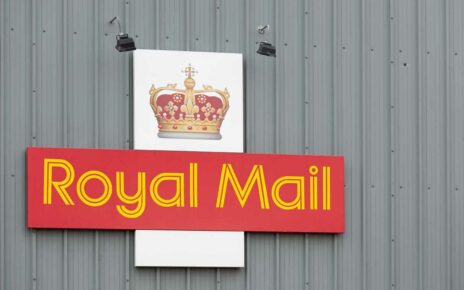The high hopes for a consensus at the jobs summit this week set up a moment to consider the scandalous waste of time and energy on a political ploy over the past few years that promised a torrent of money but delivered it too slowly to help.
An abrupt email to 400 companies last week brought a sad end to projects that would have helped thousands of workers under one of the marquee schemes of the JobMaker program, the brand Scott Morrison created as prime minister to convince voters he had the answer on the recovery from the pandemic.
Scott Morrison’s grants are under scrutiny.Credit:James Brickwood
Some companies were lucky and were promised cash from the $1.3 billion “modern manufacturing initiative” announced in October 2020 as a way to issue grants to employers with good ideas to create jobs in fields such as food production, medical innovation and clean energy. But even the lucky ones had to wait for when a decision on the MMI money might suit Morrison and his ministers – which meant they had to wait until an election was in sight.
Only now have the details been uncovered to show how long it took for the former government to decide the grants. The results are another reminder of the way political ambition now distorts the use of taxpayer funds on policies that are meant to be about the national interest – and why it is important that Anthony Albanese has vowed not to repeat this pattern now he sits in the prime minister’s suite.
It is tawdry, but not surprising, that the timing of the grants just happened to coincide with an imminent election.
The emails to the unlucky 400 companies were brusque. There was no apology for taking so long to let applicants know about their requests for funding from a scheme announced almost two years earlier. The blame was pinned on the former minister. “Unfortunately, the former Minister Angus Taylor, did not support your application,” wrote an official from the Department of Industry, Science and Resources.
The political objective was obvious. Industry Minister Ed Husic, having watched the slow progress on the MMI program from opposition, made sure he was not going to wear the blame for turning away companies left in limbo by the previous government.
Taylor says every grant was independently assessed. The fact that Labor has accepted every one, he adds, shows the original decisions were correct.
Either way, there is no more money left in the program – and no easy cash to be sought from Treasurer Jim Chalmers to help more companies.
One of those who went through the slow torture of the MMI program was David Sparling, the chief executive of IDT, a medical manufacturer in Melbourne that developed an mRNA vaccine candidate with Monash University last year.
“How they handled that process was very bad – it was extremely difficult for companies like IDT to make medium to long-term plans,” Sparling told me. “We just wanted a decision one way or another. We’d never worked with a grant system like this.”
Illustration: Andrew DysonCredit:
For all the talk in Canberra of building a sovereign capacity in Australia to make more medicines to help with future pandemics, IDT ended up as one of the 400 companies without help. The full list of the 400 companies is not public, and some do not want to talk about their experiences, but it is hard to avoid the conclusion that these companies and their workers were left hanging because the previous government did not want to confirm their applications were rejected when the election was near.
The program had three “streams” to divide up the $1.3 billion: translation, integration and collaboration. The biggest was the collaboration stream, and it fell directly under Morrison’s control. Unlike other grants programs, the guidelines for the collaboration stream said: “The prime minister decides which applications are successful.”
None of the grants were announced in 2020. Given the program was unveiled in October, it would have been optimistic to think the department could have taken applications and decided funding within a few months.
But very few grants were issued the next year. Only 34 companies were promised funding under the MMI during 2021 and the amounts promised only added up to about 15 per cent of the scheme. All of them were in the translation and integration streams. One year after the announcement, and with Morrison and his ministers often mentioning the policy in their interviews as proof they were getting things done, most of the money was not even allocated, let alone given to employers to hire workers.
There should be no surprise about what happened next. The serious money started to flow in 2022 when the election was in sight.
It took until March 1 this year for the first results to be revealed from the collaboration stream, the part of the policy over which Morrison had ultimate control. The government revealed 16 grants worth $828 million during about 10 weeks of hard politics before and during the official election campaign. Another 51 grants worth $295 million went to the applicants in the translation and integration streams.
The result: 84.5 per cent of all the MMI money was spent in the brief period when it gave Morrison and the government the biggest political bang for their buck. The response from Morrison’s office is that he approved grants as they were recommended to him by the department and the cabinet ministers. The timing, his spokesman said, reflected the fact that the grants were large and took time to decide.
It is hard to be sure about the merits of the successful applicants. Some seem to be distributors rather than manufacturers. Some are overseas companies rather than Australian. Some are in marginal seats and hosted visits by Morrison or cabinet ministers to announce the spending before the election. We have investigated this at The Sydney Morning Herald and The Age, but it will take a thorough check by the auditor-general to find out more.
The Jobs and Skills Summit has been a forum for calls for more federal help for projects that can create jobs. Many Australians accept that taxpayer money should go to projects that serve the national interest. Albanese has promised to avoid the pattern of the sports rorts affair of 2020 and the car park scandal of 2021 in spending taxpayer cash.
Meanwhile, the unlucky 400 companies are the collateral damage from a scheme that put politics first and them last.
The Opinion newsletter is a weekly wrap of views that will challenge, champion and inform your own. Sign up here.
Most Viewed in Politics
From our partners
Source: Read Full Article



